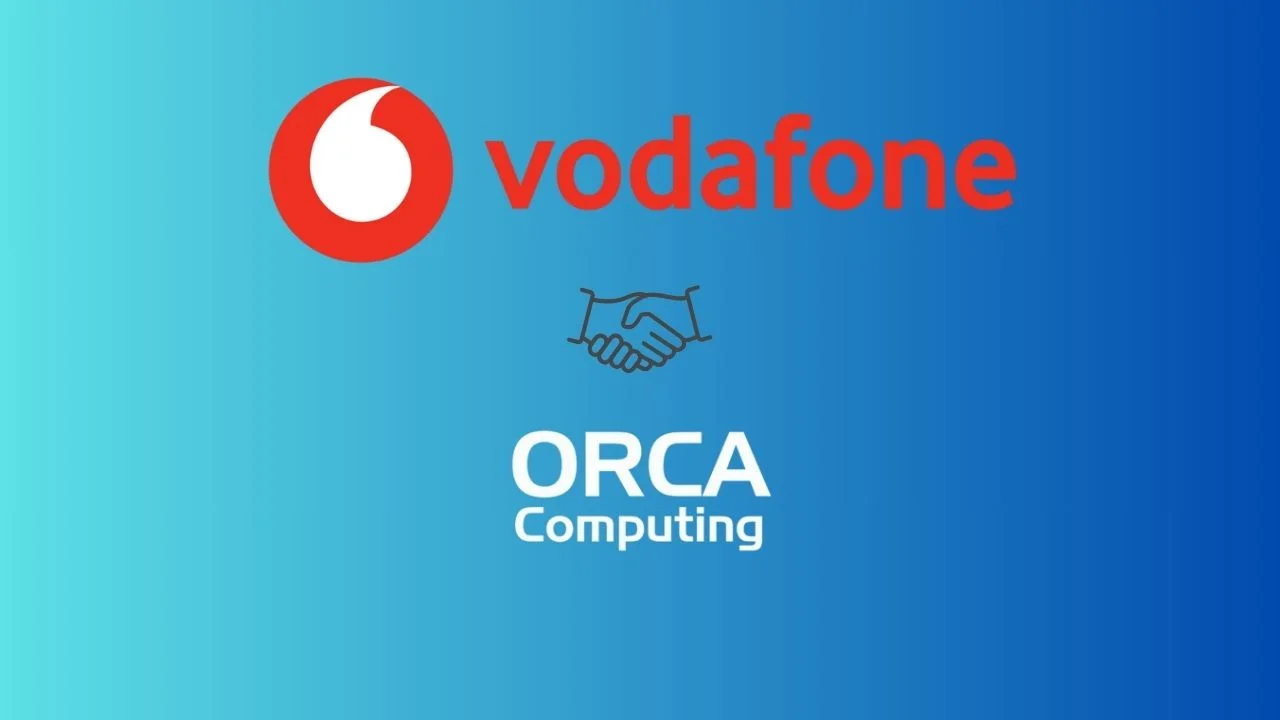
Vodafone Teams Up With ORCA Computing to Revolutionize Network Design Using Quantum Technology
In a groundbreaking collaboration, Vodafone, a global leader in telecommunications, has partnered with ORCA Computing, a pioneering quantum computing company, to explore how quantum technology can transform network design and optimization. The partnership aims to identify the fastest and most cost-effective ways to upgrade and expand fixed and mobile broadband connections, ensuring superior service for customers while minimizing costs and environmental impact.
Quantum computing, with its ability to process highly complex tasks far beyond the capabilities of traditional computers, holds immense potential for revolutionizing telecommunications. As networks grow larger and more intricate to meet rising demand for digital services, Vodafone is leveraging ORCA Computing’s advanced quantum systems to enhance current mathematical methods used for network planning and optimization. This collaboration marks a significant step toward achieving practical quantum advantage in the telecommunications industry.
Solving Complex Network Challenges in Minutes
At the heart of this partnership is the use of ORCA Computing’s PT-2 Series photonic quantum system, a state-of-the-art quantum computer designed to tackle ultra-complex problems. Vodafone’s software will run on this system to solve challenges such as optimizing optical fiber cable layouts, reducing total cable length, and determining the best locations for mobile base stations. These optimizations not only maximize network speed and reliability but also minimize costly civil engineering work, such as digging trenches for new cables.
For example, during a recent demonstration under the UK government’s Quantum Technology Access Programme (QTAP), Vodafone and ORCA Computing successfully solved the Steiner Tree Problem—a complex mathematical challenge used to determine the most cost-efficient way to extend connectivity. Using the ORCA PT-2 quantum computer, the team ran an optimization algorithm that solved the problem in minutes, a task that would typically take hours, days, or even weeks using classical computing methods.
“This collaboration with ORCA Computing allows us to solve ultra-complex problems that would otherwise take many hours, weeks, or even years to process on today’s classical computers,” said Luke Ibbetson, Head of Research & Development at Vodafone. “In the future, modeling new networks that maximize speed, reliability, and coverage for customers—while navigating urban clutter and rural obstacles—could take just minutes.”
Expanding Applications Across Vodafone’s Global Network
While the initial focus of the partnership is on solving optical fiber cable design challenges, Vodafone plans to expand the use of quantum principles to model its vast global network. Spanning over 200 destinations, Vodafone’s infrastructure includes an extensive undersea cable network that transports approximately one-sixth of the world’s internet traffic, as well as a cutting-edge direct-to-mobile satellite communications system. By applying quantum computing to these networks, Vodafone aims to improve accuracy in network optimization, accelerate fault prediction using machine learning and artificial intelligence, and ultimately deliver better service to its customers.
The collaboration also aligns with Vodafone’s broader strategy to enhance and extend its networks through greater automation and advanced computing technologies. Quantum computing is expected to play a pivotal role in this transformation by enabling faster, more precise decision-making and reducing reliance on time-consuming manual processes.
A Milestone for Practical Quantum Advantage
The partnership between Vodafone and ORCA Computing represents a significant milestone in the journey toward achieving practical and commercial quantum advantage. Unlike theoretical experiments, this collaboration demonstrates that quantum acceleration of telecommunications use cases is not only feasible but also commercially viable.
“ORCA Computing’s continued collaboration with the Vodafone team marks an important step toward achieving practical and commercial quantum advantage,” said James Fletcher, Head of Solutions Architecture at ORCA Computing. “We have shown that quantum acceleration of telecommunications use cases is not just a theoretical concept—it’s a viable, deployable, and commercially compelling solution.”
Supporting Sustainability and Customer-Centric Innovation
Beyond improving efficiency and reducing costs, the integration of quantum technology into network design supports Vodafone’s commitment to sustainability. By optimizing cable lengths and minimizing civil engineering work, the company can reduce its carbon footprint and contribute to a greener future. Additionally, the enhanced precision and speed offered by quantum computing ensure that customers receive the best possible service, with faster connections, improved reliability, and broader coverage.
Building on QTAP Success
The collaboration builds on the success of the UK government’s Quantum Technology Access Programme (QTAP), which brings together public and private sector organizations to advance the adoption of quantum technologies. At a recent QTAP event, Vodafone worked closely with ORCA Computing and other industry partners to showcase the transformative potential of quantum computing in telecommunications. The ability to quickly solve the Steiner Tree Problem using the ORCA PT-2 system highlights the tangible benefits of quantum technology in real-world applications.
A Glimpse Into the Future of Telecommunications
As demand for high-speed internet and reliable connectivity continues to grow, the telecommunications industry faces increasingly complex challenges. Traditional computing methods, while effective, are often insufficient for addressing the scale and intricacy of modern networks. Quantum computing offers a powerful solution, enabling companies like Vodafone to optimize their networks with unprecedented speed and accuracy.
The partnership between Vodafone and ORCA Computing not only sets a new standard for innovation in telecommunications but also paves the way for broader adoption of quantum technologies across industries. By harnessing the power of quantum computing, Vodafone is positioning itself at the forefront of the digital revolution, delivering faster, smarter, and more sustainable solutions for its customers worldwide.
For more information about ORCA Computing’s quantum systems or Vodafone’s quantum initiatives, visit their respective websites. Together, they are proving that quantum technology is not just a vision of the future—it’s a reality that’s already transforming the way we connect.
About Vodafone Group
everyone.connected
Vodafone is a leading European and African telecoms company. We provide mobile and fixed services to over 340 million customers in 15 countries, partner with mobile networks in over 45 more and have one of the world’s largest IoT platforms. In Africa, our financial technology businesses serve almost 83 million customers across seven countries – managing more transactions than any other provider.
Our purpose is to connect for a better future by using technology to improve lives, businesses and help progress inclusive sustainable societies. We are committed to reducing our environmental impact to reach net zero emissions by 2040.
For more information, please visit www.vodafone.com follow us on X at @VodafoneGroup or connect with us on LinkedIn at www.linkedin.com/company/vodafone.
About ORCA Computing
ORCA Computing, headquartered in London, UK, with offices in the United States, is a leading developer and provider of full-stack photonic quantum computing systems. The company delivers an innovative approach to quantum computing, providing robust, high-performance, and data center-standard systems for machine learning, generative AI and optimization workloads. ORCA Computing has successfully delivered ten on-premises quantum computers to leading global customers, including the UK National Quantum Computing Centre, Montana State University, and the Poznan Supercomputing and Networking Center.





